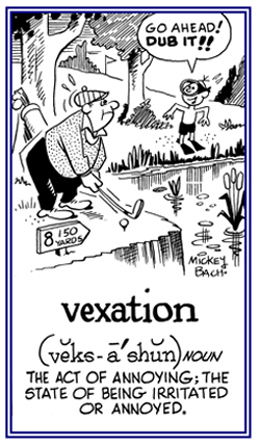-ation, -ization (-iz[e] + -ation); -isation (British spelling variation)
(Greek > Latin: a suffix; action, act, process, state, or condition; or result of doing something)
Although there are over 1,450 word entries ending with -ation or -ization listed in this unit, there are certainly many more which exist in the English language. At any rate, this unit provides a significant number of -ation and -ization examples for you to see.
At the garden center, Mrs. Tree admired the variegation in the leaves and flowers of the different plants on display.
2. The action of presenting an assortment of goods or services; diversification: Jill's financial advisor suggested that variegation in her investments would be a very good idea in order to reduce possible loses.
2. The plant life growing in a specified area.
2. The expression of profound respect or reverence for someone or something.
3. A condition of being respected or revered.
2. A mechanical system in a building that provides fresh air: The old system of ventilation needed to be replaced with a new one in the ancient dwelling.
3. The bodily process of inhalation and exhalation: Ventilation includes the process of taking in oxygen from inhaled air and releasing carbon dioxide by exhalation.
4. The replacement of stale or noxious air with fresh air: Ventilation is a process of moving or circulating air so as to supply outside air to an enclosed space and/or to remove stale air from the area with the purpose of cooling, purification, moisture reduction, etc., which may or may not involve mechanical conditioning.
2. A verbal expression or statement.
3. In psychiatry, the state of being verbose or diffuse, commonly encountered in an extreme degree in patients with the manic form of manic-depressive psychosis.
In a more general sense, verbalization refers to the expression in words of thoughts, wishes, phantasies, or other psychic material that had previously been on a nonverbal level because of suppression or repression. “Verbalize” is often used in a pseudoerudite way when “talk about” is meant.
2. The evidence that proves something true or correct.
3. In law, an affidavit swearing to the accuracy of a pleading.
2. The fact of being mentally troubled or distressed by someone who, or something which, brings on annoyances, irritations, dissatisfactions, or disappointments: Ingrid's husband was causing her vexations because of his addiction to gambling and losing so much money which was needed for the family's living expenses.
After several unsuccessful attempts to start her car, Mildred swore in vexation and used her cell phone to call an emergency car service to come and help her get the car running again.
3. The injury or damage that is suffered as a result of the tricks performed by another person: The vexation caused by Jane’s money and other valuables being stolen by a pickpocket while she was at a train station motivated her to go to the police and to report the crime to them.


